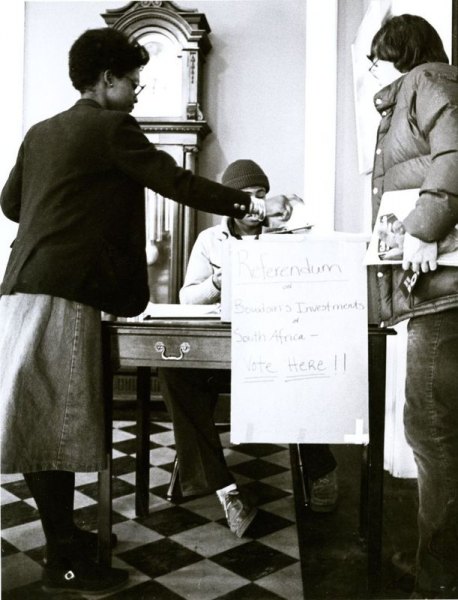In the establishment of the Africana Studies program, the Committee for Afro-American Studies (CAAS) requested only one full-time appointment in the program, the director, perhaps as a means of expediting its approval—the College would only have to fund one new faculty line. In practice, that meant the faculty director not only taught but managed the program, developed curriculum, and advised majors as well as the African American Society. This arrangement persisted for forty years, making the contribution of students’ time, effort, and advocacy to the program invaluable.
Divestment from South Africa
The Society has led social justice movements on campus since its founding. In 1970, when the College failed to recruit 85 black students to the class of 1974 per its prior promise, members of the Society took a vow of silence for two days until President Howell renewed his promise to commit as many resources as necessary to meet their goal. By 1980, student activism at Bowdoin mirrored that of other college campuses at this time, focusing on urging the College to divest from South Africa. The Society organized protests, forums, lectures and invited speakers to address the need for divestment. In this hand-written note to President Willard F. Enteman, a student in the Society invites him to attend the college’s 1978 forum, “South Africa: Economic Asset or Moral Liability?” In the image, Society president Terrie Laurie ’82 casts her vote in the campuswide divestment referendum.
